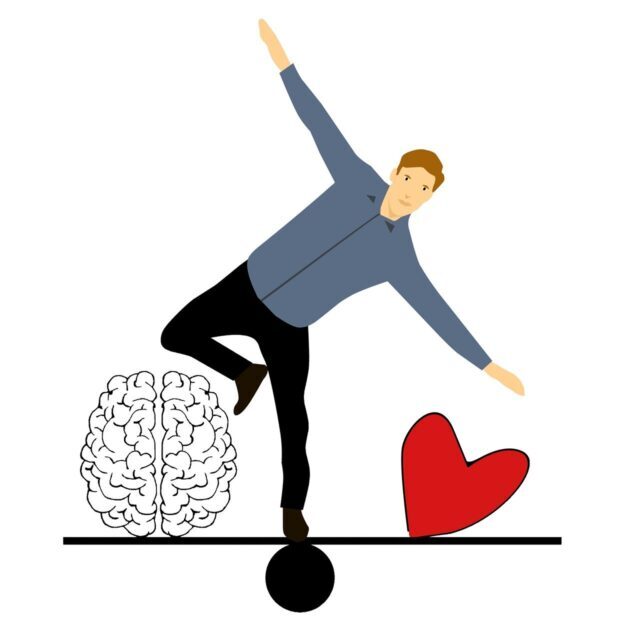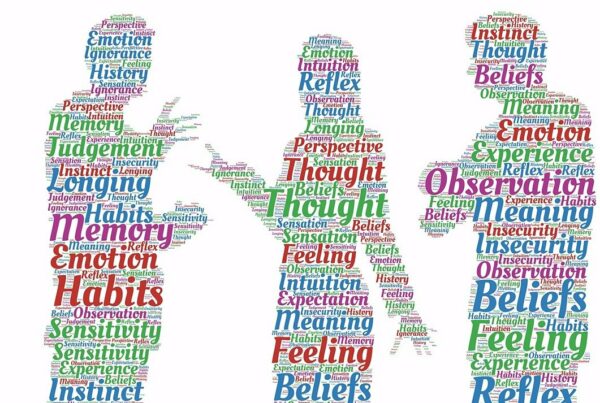
From the Archives – Chronic Anxiety in Physical Illness
Dr. Bowen spoke at a conference on cancer in 1978 about his thinking of how a disease like cancer could develop. It was quite different thinking at the time. He started by making the point that most psychiatrists (which he was) talked about families as systems or the family as a unit, but didn’t really operate from a systems perspective. “I seriously doubt if even the most experienced family researcher, therapist, can think and act systems more than a fraction of the time.”
Your Stress is my Reactivity
He was clear that stress is a stimulus (a stressor stresses the organism) and anxiety is the response. Anxiety is the emotional reactivity to real or imagined stress or threat. But more importantly, he observed that person B would respond to a threat to person A. This is a key finding for understanding the family as a unit: stress on one creates responses in others. He also observed that anxiety is infectious. Your response (anxiety) to stress (a stimulus) to me ends up creating my response of … anxiety!
Reactions to Illness
Dr. Bowen also noticed that individuals react more to the real or perceived degree of threat that an illness poses than to the type of illness itself. This makes sense from the perspective of “emotional reactiveness to a real or imagined threat.” The implication of this is that how individuals think about an illness can be part of the problem a disease presents. Dr. Bowen grew to see disease as a dysfunction of the family unit based on how anxiety spread and grew in a family. The other aspect of seeing illnesses as dysfunction is that we can view things along a continuum which allows for different levels of reactions to what might appear to be similar stressors.
“An automatic reaction of the organism is to get free of the pain of anxiety. We avoid the things that make us anxious.”
Dr. Bowen
Chronic Anxiety
“It is sustained or chronic anxiety that is most useful in determining the level of differentiation of self. If anxiety is sufficiently low, almost any organism can appear normal in the sense that it is symptom-free. When anxiety increases and remains chronic for a certain period, the organism develops tension, either within itself or in the relationship system, and the tension results in symptoms or dysfunction or sickness. The tension may result in physiological symptoms or physical illness, in emotional dysfunction, in social illness characterized by impulsiveness or withdrawal, or by social misbehaviour.” (1)
“Leaves anxiety high enough and long enough, and a symptom will emerge from the weakest area of the individual.”
Dr. Bowen
Level of Differentiation of Self
One’s level of differentiation and level of chronic anxiety are closely related. Lower levels of differentiation will generally result in greater levels of perceived threats, which generate anxiety. This will be more chronic, depending on one’s level of differentiation. For example, this sensitivity operates in relationships and can also result in a chronic level of vigilance toward others. Since it’s normal not to want to feel discomfort, one will do things to adapt and have the discomfort reduced. But since one’s level of differentiation isn’t changing, the source of the tension doesn’t go away. The individual can only work at constantly trying to ‘adapt.’ Bring in more stress, and the adapting can become dysfunctional or manifest as a physical symptom emerging “from the weakest area of the individual.”
Emotion Programming and Genetics
Almost 50 years ago, Dr. Bowen believed genes would not be the obvious source of illnesses. For one reason, we have too many genes, and they work as a system. But that doesn’t mean we don’t have vulnerabilities from our genetic makeup. He also talked about “emotional programming” that comes out of our multi-generational past. Here’s an analogy. If the body is a car, and the self is the driver, then drivers that are overreactive will tend to have more accidents, and the weakest part of their car will break down first. The more “functional” the driver, the longer, on average, the car will last.
So chronic anxiety, the chronic response to perceived threats, is related to one’s level of differentiation. Combine this with how I can pick up on others’ chronic stress, and they can pick up on mine. Then add that chronic stress is a factor in almost any illness and how one responds to illness. Thus, working to define myself in my relationships is not only good for my health, but it’s also good for the health of the system.
I invite you to observe how stressors and anxiety operate in your systems.
Thank you for your interest in family systems.
Dave Galloway
dave.galloway@livingsytems.ca
A transcript of the recording is here.
Learn more about Bowen family systems theory here.
Dr. Kerr’s article in the Atlantic on Chronic Anxiety is here.
(1) Bowen, Murray; Bowen, Murray. Family Therapy in Clinical Practice (pp. 361-362). Jason Aronson, Inc.. Kindle Edition.


